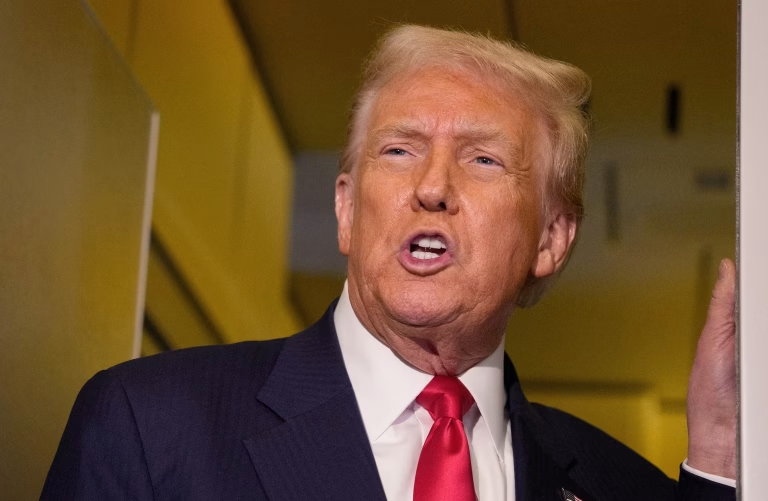
Yesterday, civil society organisations, oil and gas experts, and legal practitioners said the Senate’s attempt to recover the alleged over N11.3 trillion spent on the nation’s moribund refineries as Turn Around Maintenance (TAM) will remain an effort in futility, labelling it as another avenue to cash out from the nation’s resources after possibly wasting time on the exercise.
Stakeholders have reportedly cast a vote of no confidence in the Senate, saying that previous lawmakers at both the upper and lower chambers had done the same exercise since Nigeria returned to democracy, only to get their own cut from the national oil company.
While Nigeria continues to spend billions importing white products despite a deteriorating economy, the Senate reported last week that N11.35 trillion was spent on turn around maintenance and another N1.6 trillion loss was incurred on the moribund assets managed by Nigerian National Petroleum Company Limited.
The Senate insisted it will investigate the source of the $592,9 million, €4,877,000, and £3,456,000 that had been frittered away on the assets over the previous 13 years.
Stakeholders told this publication in different comments that there are more pressing concerns in the petroleum business calling for attention that might collapse the economy, only days after lawmakers began taking delivery of N160 million automobiles despite the suffering across the country.
Due to rising crude oil vandalism, theft, and a cascading oil spill in the Niger Delta region, Nigeria is currently struggling to meet crude oil production, petrol projects are stalling due to the last of feedstocks, deregulation of the downstream has been a mirage as subsidy payment returned on premium motor spirit, and the aviation sector and manufacturers are closing factories due to the high cost of diesel.
According to the Human and Environmental Development Agenda (HEDA Resource Centre), the probe by the Nigerian parliament is nothing more than a chance for extortion or a grab for a piece of the pie.
Olarewaju Suraju, chairman of HEDA, testified that lawmakers rarely propose law enforcement investigate or prosecute corrupt officials or criminals after hearings.
While they do have the authority to suggest sanctions, you won’t hear about such recommendations unless the subject of the inquiry refuses to cooperate fully. As an illustration, consider the recent investigation by the House of Representatives into federal character observance in public employment and the extortion related with the committee members and the university vice-chancellors.
“The Parliamentarians only, considering their treatments of the outcomes, embarked upon wasting of the nation’s resources to raise their negotiating powers and line their pockets,” Suraju said.
According to Suraju, the media and civil society can always find some good to come out of the conspiracies and corrupted hearings.
However, he did note that the sessions’ discoveries would be beneficial for investigative journalism and petitions to relevant law enforcement organisations.
The Nigerian Senate agreed in 2020 to investigate the NNPC for the $396 million spent on turn-around maintenance of the country’s refineries between 2013 and 2015. This was in response to a motion by Senator Yusuf Yusuf. Senate committees on petroleum, downstream, upstream, and gas investigated national spending during the era in question, but their findings ultimately went down the toilet.
It has been discovered that the majority of oil industry investigations conducted by the National Assembly are money-making endeavours for the politicians involved, either because they are sponsored by the oil firms under scrutiny or because they use budgetary resources to undertake the investigation themselves. Some of them have been rewarded by the oil firms they publicly threaten with overseas trips and workshops.
You may recall that Farouk Lawan, the former chairman of the federal house of representatives ad-hoc committee on fuel subsidy, was sentenced to seven years in prison on bribery charges involving $3 million by a federal capital territory (FCT) high court sitting in Apo.
Ademola Adigun, a well-known energy economist, said the probe was pointless.
“The refineries should have been sold a long time ago,” Adigun stated. These kinds of probes are a complete waste of time. This effort would be better spent on downstream deregulation.
Managing Partner of The Chancery Associates and oil and gas attorney Emeka Okwuosa put it this way: “it is an effort in futility.”
Okwuosa has called for the privatisation of the refineries, claiming that trillions of dollars have been wasted on ineffective projects under the watchful eyes of some legislators.
If we’re going to waste trillions of dollars on useless projects, it’s better to privatise the refineries, in my opinion. Proactive oversight, in which responsibility is assigned before funds are spent, is what is required, he added.
Prof. Sunny Eromosele, founder and managing director of Mudiame University, said the Senate’s endless reports and probes never amount to anything but waste.
He said, “I don’t believe any serious revelation will add up to government actions.” He then revealed that the MPs are on the same page as the people they are investigating.
According to Eromosele, the refinery and the maintenance work being done on the assets need to be evaluated.
The U-turn is currently being handled by two people. An advisory firm and the NNPC. To what end are they striving?
Faith Nwadishi, director of the Centre for Transparency, has suggested that bringing in independent, auditing entities that are not politically related could improve the exercise’s legitimacy.
No one disputes that prior Senates have gone down this road, spending a lot of money on investigative committees that oftentimes did not lead to any significant changes. However, it would be hasty to write off this current attempt on the basis of only previous failures. “Every new attempt holds the possibility of new discoveries, especially if approached with renewed vigour, commitment, and methodologies,” she stated.
Nwadishi said that the narrative should include more than just facts and figures, and that the perspectives of civil society organisations, industry professionals, and the average Nigerian should be incorporated.
Following the probe, “we hope that the Senate will share findings with us,” Nwadishi said.
Kaduna, Port Harcourt, and Warri are home to Nigeria’s three refineries. The 445, 000 bpd installed capacity of these assets has steadily declined over the years, and the plant now processes no oil at all, despite racking up significant losses.
Documents on the financial details of prior maintenance exercises, especially since the military administration, have been limited. This is because the maintenance budget has been buried in corruption, with a succession of probes at the National Assembly indicting public officials for misappropriating monies earmarked for TAM.
It was previously claimed that the three NNPC refineries in Kaduna, Port Harcourt, and Warri may have left over N136 billion in operational deficits despite being shut down. Annually, NNPC spent almost N68 billion on salaries and other costs at the idle refineries. The average annual loss over the preceding two years was N136 billion.
In the new probe, Senator Isah Jibrin Echocho is serving as the committee’s chairman.
Meanwhile, the Nigerian Upstream Petroleum Regulatory Commission (NUPRC) announced a $10,000 fine, a penalty of 50% of the fiscal price per barrel not delivered, and the denial of export permits for oil companies that fail to meet their obligations to supply crude oil feedstocks to local oil refiners.
The Chairman of the Crude Oil Refineries Owners Association of Nigeria (CORAN), Momoh Oyarekhua, had insisted that crude oil obligations required for the production of refined petroleum products by modular refineries are not being met, despite the fact that all operational modular refineries in the country are not producing to full capacity and the Dangote Refinery is currently importing crude.
The Domestic Crude Supply Obligation (DCSO) was implemented into Nigeria’s oil industry by section 109 of the Petroleum Industry Act (PIA) 2021 to prevent domestic refineries from being deprived of crude oil supply for their operation.
The commission is taking all necessary steps within the prescriptions of the Petroleum Industry Act (2021) to ensure adequate and consistent supply of feedstock to operators, according to a statement released over the weekend by Olaide Shonola, Head, Public Affairs and Corporate Communications.
If oil corporations do not fulfil their responsibilities, Shonola has warned there will be repercussions.
Preventative measures are being implemented because “operators of domestic refineries in one of the world’s largest crude oil-producing countries starting to import feedstock for their production would send wrong and unbecoming signals to the international business community,” she said.
According to Shonola, whenever the NMDPRA reports a shortage in the availability of crude, the Commission is obligated to issue a Request for Quotation (RFQ) to producers, asking for the submission of quotation for bridging the shortfall, after which the Commission would get in touch with affected refineries to facilitate contract negotiations between the stakeholders.
If the terms aren’t met, she says the oil producers will be forced by the Commission to deliver the specified amounts and inform the Authority.
For the purpose of coordinating the rollout of the domestic crude oil supply obligation, the status of operator compliance, and the response of operators, Shonola said that all 52 exploration and production companies have been called to a meeting on November 1, 2023.








